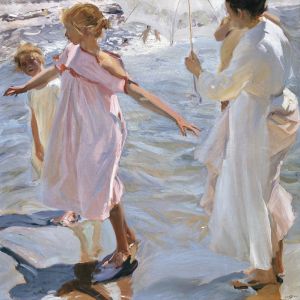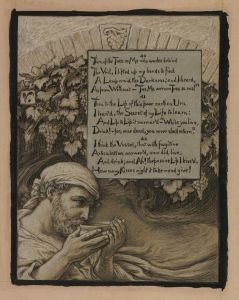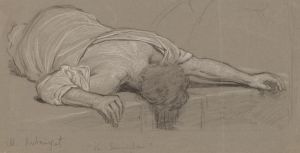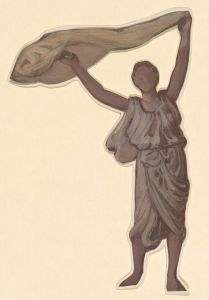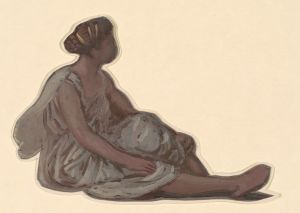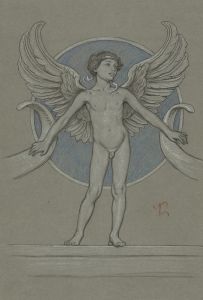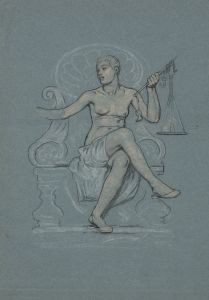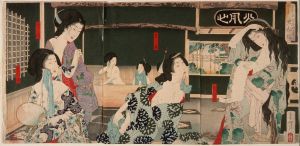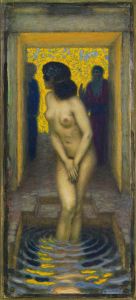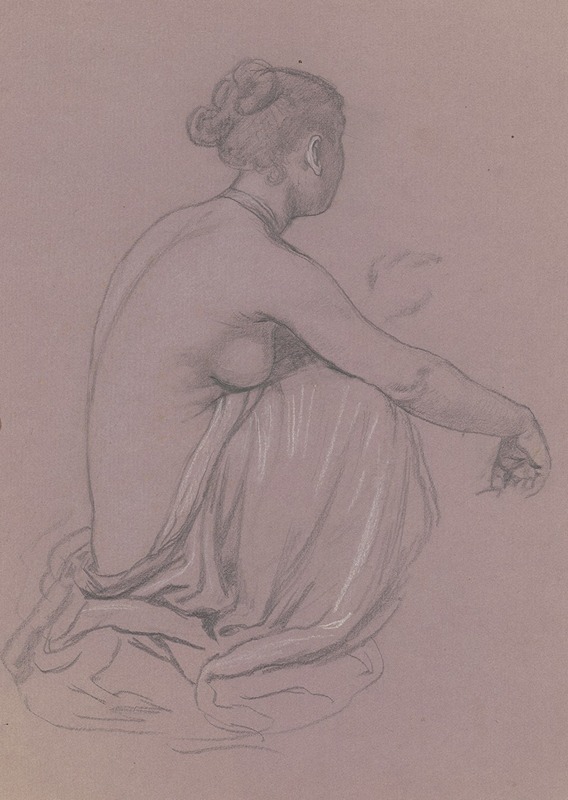
Study for ‘Greek Girls Bathing’ XIV
A hand-painted replica of Elihu Vedder’s masterpiece Study for ‘Greek Girls Bathing’ XIV, meticulously crafted by professional artists to capture the true essence of the original. Each piece is created with museum-quality canvas and rare mineral pigments, carefully painted by experienced artists with delicate brushstrokes and rich, layered colors to perfectly recreate the texture of the original artwork. Unlike machine-printed reproductions, this hand-painted version brings the painting to life, infused with the artist’s emotions and skill in every stroke. Whether for personal collection or home decoration, it instantly elevates the artistic atmosphere of any space.
Elihu Vedder was an American symbolist painter, born in New York City in 1836. He is best known for his allegorical and mythological subjects, which often incorporate elements of fantasy and symbolism. Vedder spent a significant portion of his career in Italy, where he was influenced by the classical art and culture that surrounded him. This influence is evident in many of his works, including "Study for ‘Greek Girls Bathing’ XIV."
"Study for ‘Greek Girls Bathing’ XIV" is part of a series of studies that Vedder created, exploring the theme of Greek girls bathing. These studies reflect Vedder's interest in classical antiquity and his fascination with the human form. The series showcases Vedder's skill in capturing the grace and beauty of the human body, as well as his ability to convey a sense of timelessness and serenity.
The artwork is a testament to Vedder's meticulous approach to composition and his dedication to the study of form and movement. In "Study for ‘Greek Girls Bathing’ XIV," Vedder employs a delicate balance of light and shadow to create a sense of depth and dimension. The figures are rendered with a softness that suggests both the physicality and the ethereal quality of the scene. This study, like others in the series, likely served as a preparatory work for a larger, more finished piece, allowing Vedder to experiment with different poses and arrangements.
Vedder's work often reflects his interest in the philosophical and the mystical, and his studies of Greek girls bathing can be seen as an exploration of the idealized beauty and purity associated with classical mythology. The choice of subject matter also highlights Vedder's appreciation for the aesthetic values of ancient Greece, which celebrated the harmony and proportion of the human form.
Throughout his career, Vedder was associated with the American expatriate community in Rome, where he interacted with other artists and intellectuals who shared his interest in classical themes and symbolism. His work was well-received in both Europe and the United States, and he exhibited widely during his lifetime.
While specific details about "Study for ‘Greek Girls Bathing’ XIV" are limited, it is clear that this piece, along with the rest of the series, exemplifies Vedder's commitment to exploring the intersection of art, mythology, and the human experience. His studies remain an important part of his artistic legacy, offering insight into his creative process and his enduring fascination with the beauty of the classical world.






